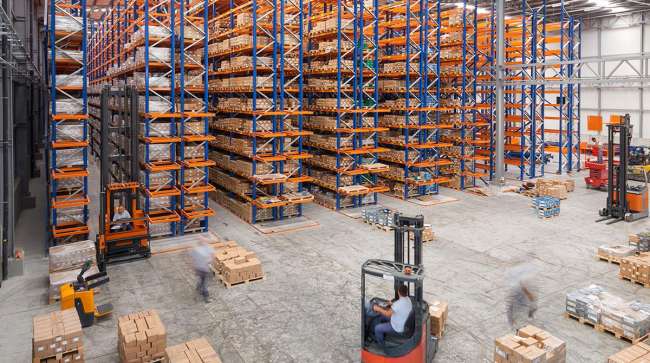Senior Reporter
Senate Commerce Leaders Push Supply Chain Efficiency

[Stay on top of transportation news: Get TTNews in your inbox.]
To promote efficiency across the country’s supply chain, Commerce Committee Chairwoman Maria Cantwell recently pressed colleagues to advance legislation meant to enhance the flow of freight.
The chairwoman argued Congress has “caught on that the supply chain is key to our economic strategy, and that a robust supply chain in the United States of America means we’re going to continue to have robust employment in the United States of America.”
After myriad industries responded to COVID-19 related disruptions to the distribution of refined petroleum, as well as a shortage of semiconductor chips used by the automobile sector, congressional policymakers say they are pursuing a proactive approach to supply chain concerns.

Miller
John Miller, senior vice president of policy and general counsel at the Information Technology Industry Council, reminded senators of a need to protect the global information and communications technology industry, and promote supply chain resiliency.
“A successful supply chain resiliency strategy must widen the aperture to consider a full array of relevant threats and considerations, not only to address identifiable, material, concrete national security risks directly tied to actionable threats articulated in [U.S. government] intelligence or vulnerability assessments, but also to consider other facets of resiliency including supply chain resiliency investments, U.S. competitiveness, availability and domestic manufacturing capacity,” said Miller.
During the pandemic, the delivery of goods and supplies to hospitals and grocery stores was facilitated by the trucking workforce and other freight stakeholders.
At a July 15 hearing, Cantwell (D-Wash.) emphasized potential benefits of the committee-approved U.S. Innovation and Competitiveness Act, which she said aims to contribute to the resiliency of the supply chain.
The measure would incentivize domestic semiconductor manufacturing, and establish a Supply Chain Resiliency and Response Office at the Department of Commerce. It also is designed to enhance research and development investments at the Commerce and Energy departments, and the National Science Foundation. Its objective would be to set up regional technology hubs and expand the workforce and innovation economy, she noted. The bill awaits consideration in the U.S. House of Representatives.

Cantwell
“Without the resiliency of the supply chain, it could be complicated, given the experience of COVID, as to whether products can be delivered in a timely fashion, whether our services and security could be impacted, and just how important it is that we have a strategy for a global economy in which a variety of products and services can be delivered in a much more competitive fashion than in the past,” said the chairwoman.
“The world has changed, supply chains have changed and are changing, and I look forward to how the United States stays very competitive here,” she continued.
Sen. Roger Wicker (R-Miss.), the committee’s ranking member, echoed Cantwell’s sentiment focusing on efforts meant to promote global competitiveness. As he put it, “As global competition has increased, control over our supply chains has fallen into the hands of fewer and fewer countries, most notably China.”
“Such geographic concentration of supply chains has left many U.S. companies vulnerable to disruption, something we are now acutely experiencing. Helping U.S. companies identify and address areas of vulnerability will require strong partnerships and international partners,” said Wicker. “The federal government can also help by investing in [research and development] and workforce development to make sure new innovations are conceived and developed here in the United States.”
Yesterday, I met with a bipartisan group of House and Senate members to discuss U.S. supply chains and then took executive action to strengthen them. The American people should never face shortages when it comes to the goods and services they rely on. pic.twitter.com/y342c3AX5C — President Biden (@POTUS) February 25, 2021
Earlier this year, President Joe Biden proposed guidelines aimed at boosting the sustainability of critical supply chains, and called for additional investments to promote semiconductor production. The president also touted the Commerce Committee’s passage of the U.S. Innovation and Competition Act: “By strengthening our innovation infrastructure, we can lay the foundation for the next generation of American jobs and American leadership in manufacturing and technology.
“We are in a competition to win the 21st century, and the starting gun has gone off. As other countries continue to invest in their own research and development, we cannot risk falling behind,” Biden added.
Want more news? Listen to today's daily briefing below or go here for more info:




